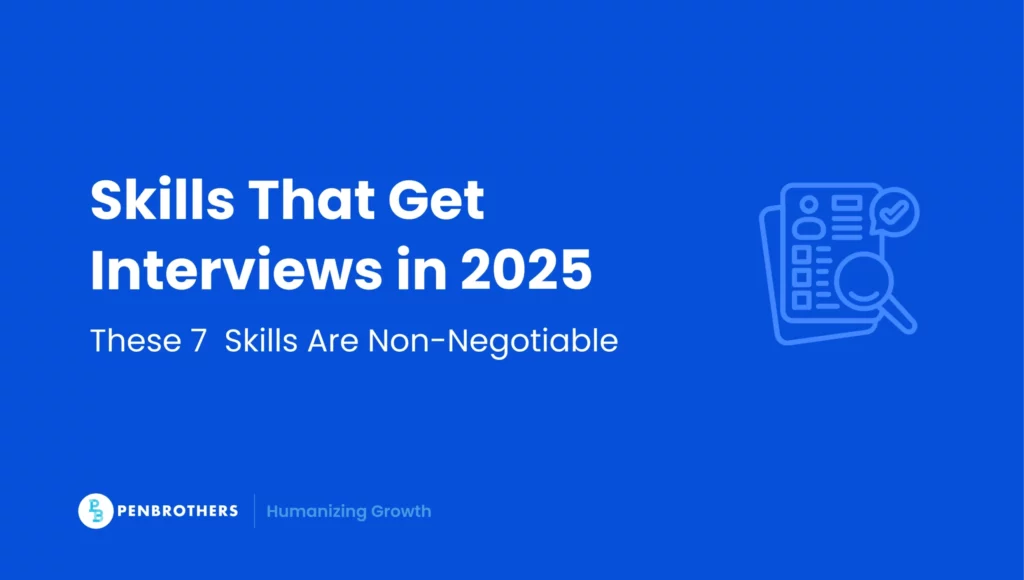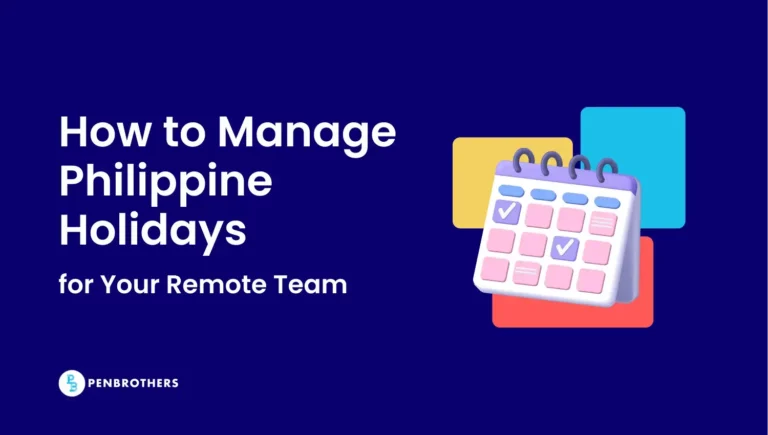This 2025, resumes are more than a job application. They’re a strategic tool to prove you’re not just qualified, but future-ready. Whether you’re actively job hunting or considering a career shift, it’s time to rethink what skills belong on your resume. And if you’re a hiring manager, knowing what to look for beyond buzzwords is crucial to building a high-performing remote or hybrid team.
This guide unpacks the top 7 skills to put on your resume for 2025, shaped by the evolving job market, remote work demands, and the AI-powered recruitment landscape. Let’s dive in.
Key Takeaways
- Focus on Skills for the Modern, Remote Workplace: The most in-demand skills for 2025 are tailored to the realities of a distributed workforce. These include digital communication, asynchronous collaboration, and self-leadership, which are all essential for success in remote and hybrid environments.
- AI Fluency has Become a Universal Requirement: AI fluency is no longer a skill reserved for tech roles. All professionals are now expected to demonstrate that they can use common AI tools, such as ChatGPT, to enhance their productivity and improve their workflows.
- Show Your Impact with Quantifiable Results: The most effective way to present skills on a résumé is to provide concrete evidence of their application. Instead of simply listing a skill, you should describe a specific achievement where you used that skill to produce a measurable result, such as “reduced meeting time by 35%.”
- A Cross-Functional and Inclusive Mindset is Critical: As companies operate with lean, globally distributed teams, employers are increasingly looking for candidates who possess cross-functional thinking (the ability to work effectively beyond their own department) and inclusive communication skills that are suited for collaborating with diverse colleagues.
Why Skills Matter More in 2025
Hiring today is increasingly skills-first. Employers are prioritizing what candidates can do over where they went to school or even how long they’ve worked.
Here’s why this shift matters:
- Remote and hybrid work require self-motivation and collaboration across time zones.
- AI and ATS (Applicant Tracking Systems) scan resumes for keyword-rich, skill-based content.
- Cross-functional teams are the norm, demanding broader competencies.
For job seekers, showcasing skills in a clear, targeted way is essential. For employers, recognizing true skill depth over generic labels helps reduce mis-hires.
The Top 7 Skills to Put on Your Resume This 2025
1. Digital Communication & Asynchronous Collaboration
In a remote-first world, being able to express yourself clearly through writing and async tools (like Notion, Slack, or Loom) is non-negotiable.
Employers look for:
- Clear written communication
- Proactive status updates without micromanagement
- Team alignment via async platforms
Show it on your resume: “Led remote team of 6 via Slack and Notion, reducing meeting time by 35%”
2. AI Fluency (for All Roles)
No, you don’t need to code an AI model. But you do need to understand how AI tools (like ChatGPT, Grammarly, or AI search engines) enhance productivity.
Employers look for:
- AI tool usage in day-to-day workflows
- Comfort adapting to tech trends
Show it on your resume: “Used ChatGPT to draft client proposals, reducing writing time by 50%.”
3. Cross-Functional Thinking
Today’s lean teams need employees who can think beyond silos.
Employers look for:
- Collaboration with product, ops, marketing, etc.
- Systems-level thinking
Show it on your resume: “Coordinated product launch with sales and support teams, leading to a 15% increase in upselling.”
4. Problem Solving in Dynamic Environments
Fast-changing markets reward candidates who remain calm under pressure and solve problems with limited direction.
Employers look for:
- Initiative and resourcefulness
- Data-driven decisions under uncertainty
Show it on your resume: “Resolved 30+ customer escalations per week during Q4 surge with 95% satisfaction rate.”
5. Digital Literacy and Remote Tool Mastery
You should be comfortable navigating remote tech stacks.
Employers look for:
- Tools: Google Workspace, Trello, Zoom, Airtable, Notion
- Efficiency using digital workflows
Show it on your resume: “Built automated reporting system in Airtable, saving 4 hours/week.”
6. Inclusive Communication & Cultural Awareness
Remote teams often span continents. Inclusive communication ensures everyone is heard.
Employers look for:
- Empathy in communication
- Experience working across diverse teams
Show it on your resume: “Collaborated with regional teams across APAC, adapting product messaging for cultural relevance.”
7. Self-Leadership & Independent Execution
Remote work thrives on self-starters.
Employers look for:
- Ownership over goals
- Ability to manage deadlines without supervision
Show it on your resume: “Independently managed client onboarding, reducing churn by 10%.”
What Employers Should Actually Look for in Resume Skills
Don’t just scan for buzzwords. Look for:
- Evidence of application (e.g., “increased X by Y using Z”)
- Relevance to the job
- Modern, industry-aligned tools
Avoid resumes that list 30+ skills with no context. A tight, tailored skills section beats a generic one every time.
Bonus: Skills vs. Traits
A skill is something you can teach or prove (e.g., “project management”). A trait is a personal quality (e.g., “detail-oriented”).
Tip: Frame traits in a skill-based context.Instead of “team player,” write: “Facilitated weekly cross-department standups to ensure project alignment.”
How to Customize Your Skills for Each Application
- Analyze the job post: Look for repeated skill-related keywords.
- Mirror the language: Use their terms when honest (e.g., “async workflows”).
- Tailor your top 3-5 skills to match the role.
Pro Tip: Update your resume summary to spotlight the top 3 role-specific skills.
Resume Skills by Role Type
Marketing: AI copywriting, funnel testing, async creative reviews
Customer Success: CRM proficiency, customer de-escalation, video walkthroughs
Tech/Engineering: Prompt engineering, GitHub collaboration, LLM integration
Admin/Operations: Notion databases, workflow automation, async scheduling
Sales: Remote pitching, CRM pipelines, data-informed prospecting
Conclusion
In 2025, showing the right skills is more important than ever, especially in a competitive, remote-first job market. Whether you’re applying for a new role or hiring one, it’s time to look beyond generic lists and focus on future-proof, results-driven abilities.
If you’re looking for remote roles with attractive compensation and benefits, check out these openings.
Frequently Asked Questions
You should focus on quality over quantity. It is best to list 7 to 10 of your most relevant and high-impact skills that are specifically tailored to the job for which you are applying.
While you can, it is often more effective to show how you apply your skills in context. The best approach is to have a dedicated skills section for scannability and also to embed both hard and soft skills into the accomplishment bullet points under your work experience.
You should include them in two places: in a dedicated skills section so they are easy for a recruiter to see at a glance, and integrated into the bullet points under your professional experience to provide context and show how you have used those skills to achieve results.
Yes, absolutely. You should show how you use common AI tools to make your specific work more efficient or effective. For example, you could mention using an AI tool to help draft client proposals or analyze data for a report.
Yes, skills gained from freelance or side projects are valuable and should be included on your résumé. The key is to treat them just like any other professional experience by backing them up with real, quantifiable outcomes to demonstrate their impact.






